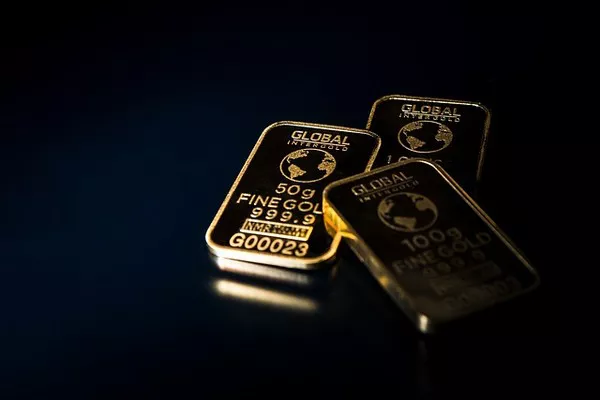As the price of gold reaches new all-time highs, Peter Kuster, Editor of finews.com, argues that the Swiss National Bank (SNB) should begin replenishing its gold reserves, 25 years after it divested over half of them.
Reflecting on the historical context, Kuster noted that 25 years ago, the SNB, along with 14 other central banks, signed the Gold Agreement, which facilitated their coordinated sales of gold. “At that time, numerous arguments were made against gold as a viable investment,” he stated in an analysis published Thursday. “However, most of these assumptions have since been proven incorrect, signaling a need for a reassessment of gold’s role in a central bank’s portfolio.”
Kuster highlighted a “remarkable coincidence”: Thomas Jordan is set to announce his final monetary policy decision as Chairman of the SNB Governing Board, precisely 25 years after the signing of the Gold Agreement during the Bretton Woods Institutions’ annual meeting.
The Gold Agreement aimed to manage the collective decision of central banks to sell no more than 2,000 tons of gold over five years. The SNB was the leader in this initiative, selling 1,300 tons between 2000 and 2005, which amounted to more than half of its original 2,590-ton reserve.
The need for this coordination arose following the UK’s announcement to sell gold in May 1999, which caused gold prices to plummet to a two-decade low. At the time, gold was perceived as an outdated asset, overshadowed by stocks and bonds, which were deemed more attractive due to their income-generating capabilities.
Kuster pointed out that in the late 1990s, Switzerland held the fifth-largest gold reserves globally and the largest on a per capita basis. He explained that the SNB had to value its gold at a fixed rate of 4,595 francs per kilogram, making the potential for revaluation gains particularly appealing.
A pivotal moment came in March 1997, when the SNB announced its gold sales program. On the advice of then-SNB President Hans Meyer, Swiss President Arnold Koller proposed using the revaluation gains from the SNB’s gold to fund the Solidarity Foundation, a move intended to address the contentious issue of dormant accounts and Switzerland’s historical role during World War II.
Following the signing of the Gold Agreement in June 1999, the SNB’s gold sales commenced, raising a total of 21.1 billion francs (approximately $17 billion in 2025 dollars) at an average price of 16,241 francs per kilogram. The proceeds were distributed to the federal government and cantons, establishing a standard formula for future allocations.
From 2007 to 2009, the SNB sold an additional 250 tons of gold, with these proceeds being reinvested into foreign currency assets rather than distributed. The bank justified this decision by claiming that its gold holdings had become too significant a portion of its foreign reserves.
In 2014, Swiss voters rejected a proposal that would have mandated the SNB to keep at least 20 percent of its reserves in gold, likely due to concerns over its restrictive impact on the SNB’s monetary policy flexibility.
Kuster remarked that the SNB’s decision to sell off more than 50% of its gold reserves feels increasingly distant in today’s context. He noted that many central banks, particularly in emerging markets, have been actively purchasing gold, while the price of gold has reached record levels, now exceeding 70,000 francs per kilogram.
He stated, “The notion of a peaceful and cooperative world focused on economic pragmatism is now a distant dream.” Kuster emphasized that gold’s strong performance compared to other financial assets has been consistently validated. The SNB’s 2023 annual report revealed that gold achieved an average annual return of 4.3% in Swiss francs from 2009 to 2023, significantly outperforming its foreign currency investments, which returned only 0.4% in the same period.
While hindsight makes it easy to criticize the SNB’s past gold sales, Kuster posed a more intriguing question: Should the SNB reconsider purchasing gold today? He pointed out that the bank’s balance sheet has expanded due to extensive foreign currency purchases aimed at combating a strong Swiss franc, while its gold reserves remain stagnant at 1,040 tons.
Economist Adriel Jost recently commented that the SNB seems to prefer buying bonds from countries with unsustainable debt levels rather than investing in gold. Jost suggested that gold purchases could signal a lack of confidence in other countries, which might strain the SNB’s relationships with foreign central banks.
Kuster advocated for the SNB to pursue greater intellectual independence in its investment strategies. He warned that foreign governments may pressure Switzerland to hold their bonds to avoid rising refinancing costs. Domestically, the SNB’s investment policies have come under scrutiny, particularly concerning sustainability. In September, the think tank Avenir Suisse called for broader and neutral investment criteria without excluding assets based on political concerns or sustainability criteria.
Kuster argued that Avenir Suisse overlooked gold’s unique role as a no-counterparty-risk asset that is less vulnerable to political pressure. “It’s certainly worth debating whether the timing is right for the SNB to buy gold again,” he wrote. He posited that gold serves as a form of insurance against significant political and economic crises, and the high price reflects market perceptions of potential severe crises.
Concluding, Kuster asserted that these factors should compel the SNB to reassess its stance on gold after a quarter-century, this time with a focus on purchasing rather than selling.
You Might Be Interested In
- Silver Prices Steady Near $32 as Fed Speculation Grows
- Financial Markets Face Volatility Amid Economic Uncertainty and Liquidity Growth
- U.S. Housing Market Shows Stabilization Amid Declining Sales,gold close to the $2,700 per ounce mark


